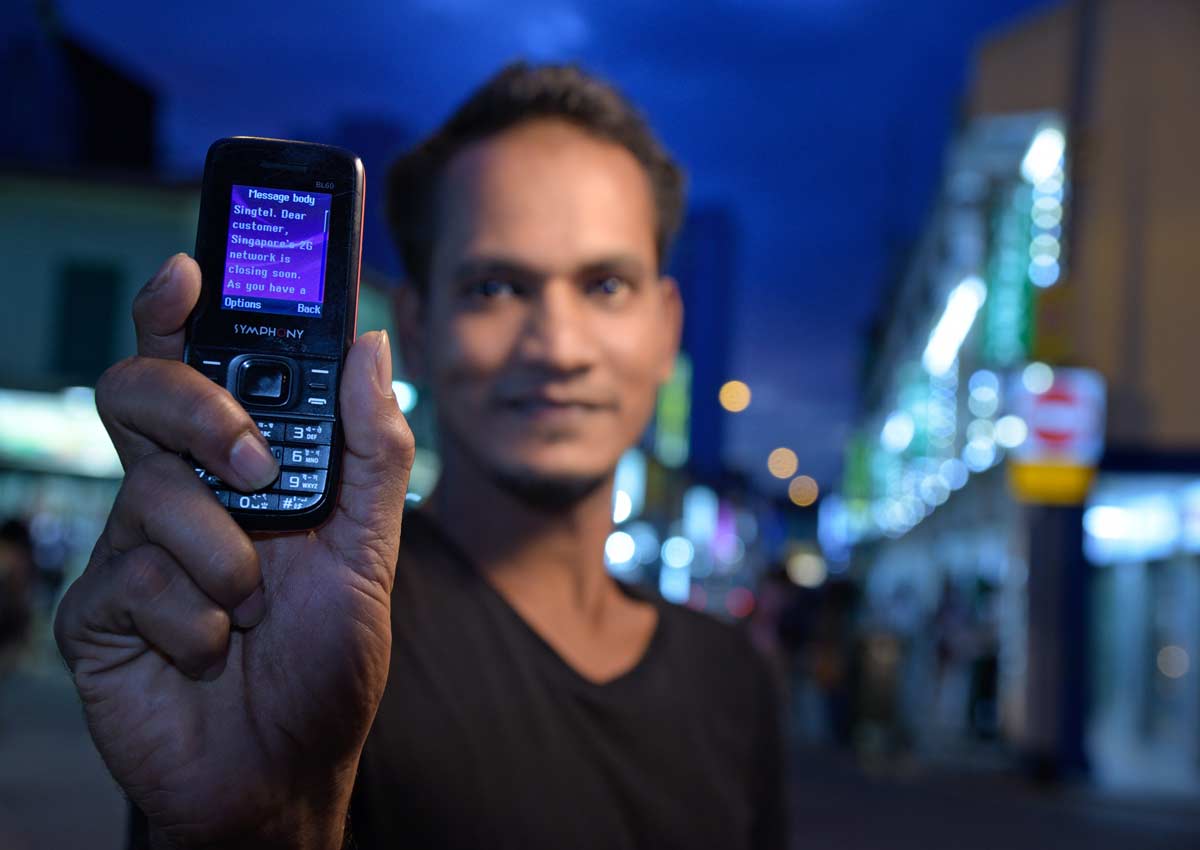The humble 2G phone, which provides only basic Internet access on top of voice calls and SMS, is an entry-level phone used by many foreign workers here to keep in touch with their loved ones back home.
For those involved in workplace disputes, it is even more essential as they need to be contactable.
But these phones are slated to become obsolete here next April, when local telcos pull the plug on the 2G or second-generation network. It was reported last year that 2G services were used by only 3 per cent of mobile users here.
A foreign workers’ advocacy group is now trying to help needy workers upgrade to the more advanced 3G phones.
Alex Au, treasurer of Transient Workers Count Too (TWC2), said 20 per cent to 25 per cent of around 2,000 migrant workers whom it helps probably do not have 3G phones. Even if they do, the phones could be very old.
TWC2 helps workers, including maids and construction workers, who face problems such as injury, illness, salary issues and deportation.
Phones allow them to call for help. While those who are better off may buy a 3G phone when 2G services end, that might not be the case for those stranded without a job.
“Typically, a worker with a complaint over unpaid or short-paid salaries will need to stay about two to three months for case resolution,” Mr Au said, adding that a worker with an injury often stays longer.
While most cases are closed within nine months, a small number can stretch beyond a year and up to two years.
For example, Mr Rajib, a shipyard worker who goes by one name, had a workplace injury last month and relies on TWC2 for help with meals.
The 30-year-old uses his 2G phone to keep in touch with his mother in Bangladesh, who worries about his health. Not knowing when his case will be settled, he said: “I don’t have money (for a new phone).”
TWC2 hopes to get at least 100 phones. “Hopefully, we will get enough donations to give every TWC2 client who needs a replacement phone one,” said Mr Au.
The group is calling for donations of money or used 3G phones. The cash will be used to buy second-hand phones, which could cost around $50 each, or chargers.
Its campaign, which started on Sunday, is expected to run for six months. As of yesterday, the group had raised over $1,100 on crowdsourcing platform Giving.sg.
byseow@sph.com.sg

Get MyPaper for more stories.






